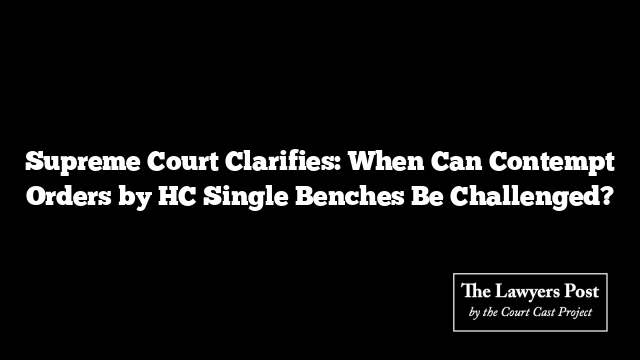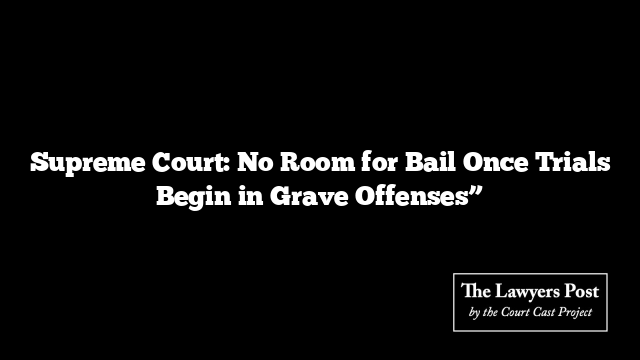The Supreme Court has shed light on when orders issued by a High Court single bench in contempt cases can be appealed before a division bench. According to the Court, decisions such as declining to initiate contempt proceedings, initiating them, dropping them, or acquitting the alleged contemnor are not appealable under Section 19 of the Contempt of Courts Act, 1971. Instead, such orders may be challenged directly before the Supreme Court under Article 136 of the Constitution in specific situations.
This clarification arose while the Court was addressing a case involving a dispute over contempt proceedings initiated in the Allahabad High Court. The matter concerned a service-related issue in which the High Court’s single bench had ruled that no contempt of a prior order had been committed. However, the division bench entertained an appeal against this ruling, prompting the matter to escalate to the Supreme Court.
Context of the Case
The dispute stemmed from an April 2015 High Court judgment directing a college to reinstate a respondent. When the college allegedly failed to comply, the respondent sought contempt proceedings. In January 2022, the single bench ruled that no contempt had occurred. The respondent then appealed this ruling before the division bench, which issued interim directions allowing the respondent to report back to the institution.
The division bench rejected the college’s argument that the respondent had forfeited her right to salary by failing to rejoin the institution earlier. However, this interim order was challenged before the Supreme Court.
Legal Arguments
The appellants argued that the second appeal was untenable, relying on the Supreme Court’s ruling in Midnapore Peoples’ Coop. Bank Ltd. v. Chunilal Nanda. They contended that orders declining to initiate or dropping contempt proceedings are explicitly non-appealable under Section 19.
The respondent countered that the single bench had delved into the merits of the case, making the appeal valid under specific provisions outlined in the Midnapore judgment.
Supreme Court’s Findings
The bench, comprising Justices B.R. Gavai and K.V. Viswanathan, disagreed with the respondent’s interpretation. The Court emphasized that Clause II of the Midnapore judgment clearly bars appeals in cases where contempt proceedings are declined or dropped. Furthermore, since the single bench order did not address the merits of the original dispute, the division bench appeal was invalid.
The Supreme Court quashed the division bench’s interim order and dismissed the respondent’s appeal. It reaffirmed that in such cases, the only available remedy is to approach the Supreme Court under Article 136.
Conclusion
This decision underscores the boundaries of appellate jurisdiction in contempt cases, providing clarity for similar disputes in the future. By emphasizing the distinction between procedural and merit-based rulings, the Supreme Court has reiterated the limitations of Section 19 while maintaining the broader recourse under the Constitution.





